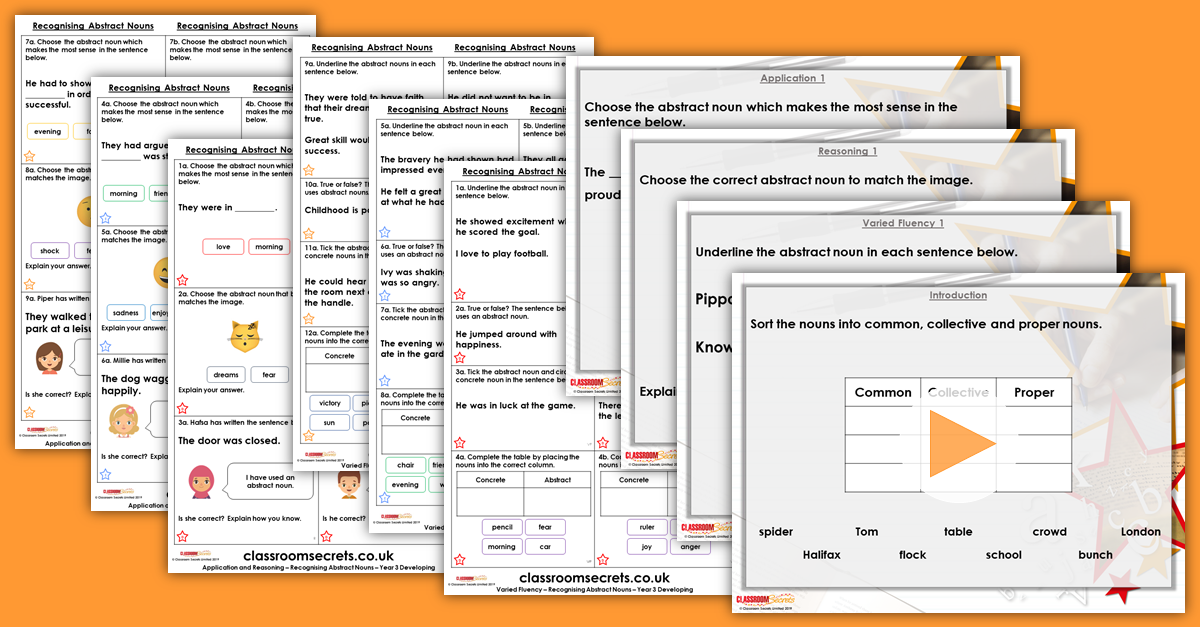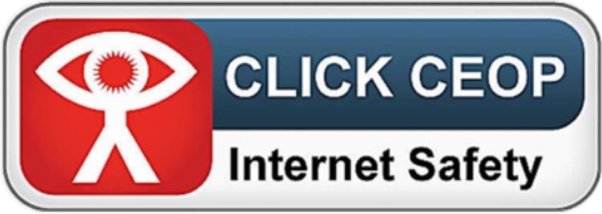Recognising Abstract Nouns Year 3 Nouns Resource Pack

Step 2: Recognising Abstract Nouns Year 3 Resource Pack
Recognising Abstract Nouns Year 3 Resource Pack includes a teaching PowerPoint and differentiated varied fluency and application and reasoning resources. This pack is designed to work alongside our GPS Scheme of Work for Summer Block 1.
Not a member? Sign up here.
What's included in the pack?
This pack includes:
- Recognising Abstract Nouns Year 3 Teaching PowerPoint.
- Recognising Abstract Nouns Year 3 Varied Fluency with answers.
- Recognising Abstract Nouns Year 3 Application and Reasoning with answers.
National Curriculum Objectives
No formal objective. However, these words are taken from the year 3/4 non-statutory spelling list and the focus is given to vocabulary of abstract concepts in line with the Spoken Language Guidance.
- Spell words from the word list – years 3 and 4.
Differentiation:
Varied Fluency
Developing Questions to support identifying abstract nouns within short sentences, using common abstract nouns that children may already be familiar with. (For example: excitement, happiness, morning, love).
Expected Questions to support identifying abstract nouns within sentences. A mixture of common and less familiar abstract nouns are used. (For example: bravery, friendship, generosity, evening, kindness, sadness).
Greater Depth Questions to support identifying abstract nouns within sentences of varying length. Common and less common abstract nouns used. (For example: faith, courage, sacrifice, victory).
Application and Reasoning
Questions 1, 4 and 7 (Application)
Developing Choose the correct abstract noun for a given sentence from two options. Using common abstract nouns that children may already be familiar with. (For example: excitement, happiness, morning, love).
Expected Choose the correct abstract noun for a given sentence from three options. A mixture of common and less familiar abstract nouns are used. (For example: bravery, friendship, generosity, evening, kindness, sadness).
Greater Depth Choose the correct abstract noun for a given sentence from three options. Common and less common abstract nouns used. (For example: faith, courage, sacrifice, victory).
Questions 2, 5 and 8 (Reasoning)
Developing Choose an abstract noun to match an image from two possibilities. Using common abstract nouns that children may already be familiar with. (For example: excitement, happiness, morning, love).
Expected Choose an abstract noun to match an image from three possibilities. A mixture of common and less familiar abstract nouns are used. (For example: bravery, friendship, generosity, evening, kindness, sadness).
Greater Depth Choose an abstract noun to match an image from three possibilities. Common and less common abstract nouns used. (For example: faith, courage, sacrifice, victory).
Questions 3, 6 and 9 (Reasoning)
Developing Explain whether a statement is correct. Using common abstract nouns that children may already be familiar with. (For example: excitement, happiness, morning, love).
Expected Explain whether a statement is correct. A mixture of common and less familiar abstract nouns are used. (For example: bravery, friendship, generosity, evening, kindness, sadness).
Greater Depth Explain whether a statement is correct. Common and less common abstract nouns used. (For example: faith, courage, sacrifice, victory).
This resource is available to download with a Premium subscription.






